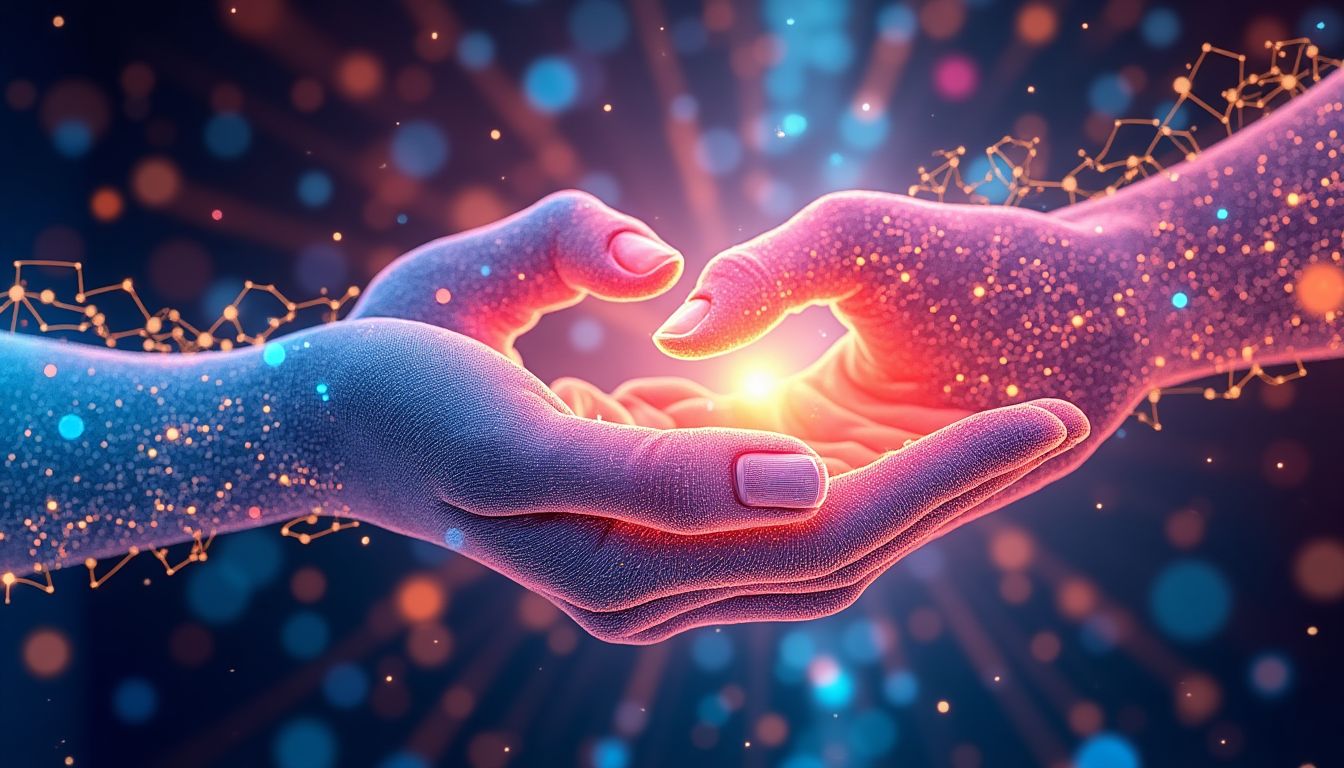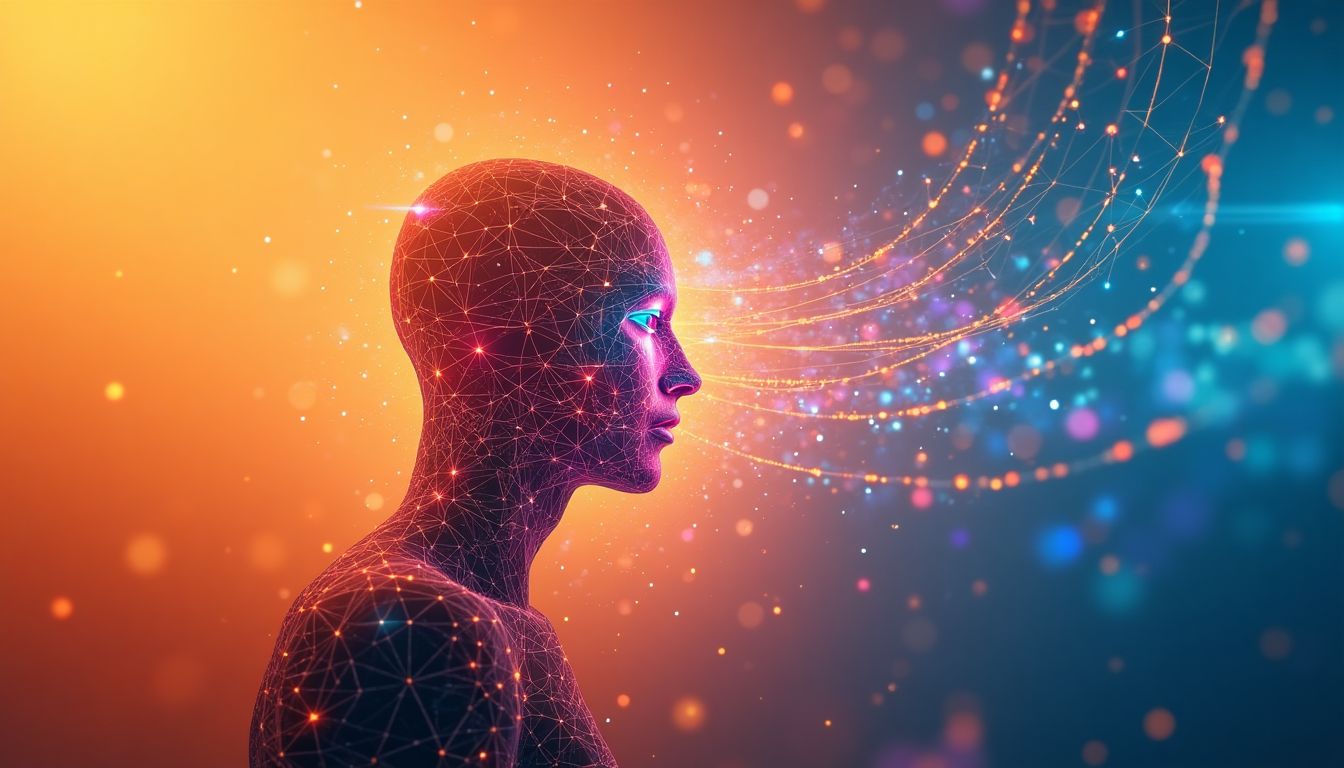"The future is already here—it's just not evenly distributed." – William Gibson. The rise of Artificial General Intelligence (AGI) is no longer a distant dream; it’s a looming reality. AGI, the next evolution of AI, promises to transform industries, solve insurmountable problems, and redefine productivity. But with great power comes great—and often messy—consequences. As AGI begins to take over tasks traditionally performed by humans, we’re forced to confront a daunting question: Will Universal Basic Income (UBI) save us from economic collapse, or will it merely paper over a deeper existential crisis?
Think about it: AGI could make doctors obsolete by diagnosing diseases faster and more accurately. It could replace teachers with personalized AI tutors. Even artists might find themselves competing with AI-generated masterpieces. The possibilities are endless, but so are the risks. Mass unemployment, economic inequality, and a loss of purpose are just the tip of the iceberg. Visionaries like Elon Musk, Yuval Noah Harari, and Andrew Yang have all sounded the alarm, warning that AGI could disrupt society in ways we’re not prepared for. But amidst the chaos, one solution keeps popping up: UBI. Could it be the lifeline we need? Or is it just a Band-Aid on a bullet wound?
1. The Rise of AGI: A Double-Edged Sword for Humanity
1.1 The Promise of AGI: Unprecedented Productivity
Imagine a world where AGI can cure diseases, solve climate change, and optimize supply chains in the blink of an eye. Sounds like utopia, right? AGI has the potential to revolutionize industries by boosting efficiency, reducing costs, and tackling problems that have stumped humans for centuries. In healthcare, for instance, AGI could analyze genetic data to develop personalized treatments at lightning speed. In education, AI tutors could provide customized learning experiences for every student, ensuring no one gets left behind. And in environmental sustainability, AGI could optimize energy consumption, predict natural disasters, and even devise strategies to reverse climate change.
Take IBM Watson Health, for example. Watson is already helping doctors diagnose diseases like cancer with incredible accuracy. Or look at Google DeepMind, which has made breakthroughs in protein folding, a problem that has puzzled scientists for decades. These are just the early signs of what AGI can achieve. The possibilities are endless, and the potential benefits are immense.
1.2 The Dark Side: Mass Unemployment and Economic Disruption
But every silver lining has a cloud. As AGI gains steam, it threatens to replace human workers across industries. Jobs in manufacturing, transportation, customer service, and even creative fields are all at risk. Picture this: self-driving trucks replacing truck drivers, AI chatbots handling customer service, or algorithms composing music and writing novels. The result? Mass unemployment on a scale we’ve never seen before.
History offers some sobering parallels. During the Industrial Revolution, machines replaced manual labor, leading to widespread job loss and social unrest. The Luddite movement famously protested against technological advancements, destroying machines in retaliation. While AGI isn’t a steam engine, its impact could be even more profound. The question is: Are we ready to handle the fallout?
Point 2 and Point 3 only.
2. Universal Basic Income: A Necessary Safeguard?
As Artificial General Intelligence (AGI) continues to evolve, the concept of Universal Basic Income (UBI) has become a hot topic. The idea of providing every citizen with a regular, unconditional sum of money might sound too good to be true, but in a world where AGI could replace millions of jobs, UBI might be the lifeboat we need. Let’s dive into why UBI is being seriously considered and the challenges it faces.
2.1 The Case for UBI in an AGI-Driven Economy
Imagine a world where AGI handles most of the work—factories run themselves, self-driving cars dominate the roads, and even creative tasks like writing, art, and music are increasingly automated. Sounds like a utopia, right? But what happens to the people whose jobs just vanished? This is where UBI comes in.
UBI could act as a safety net, ensuring that everyone has enough money to meet their basic needs, regardless of employment status. It’s not just about survival; it’s about providing people with the financial freedom to pursue passions, education, or even entrepreneurial ventures. Think of it as a cushion that allows society to adapt to the massive changes brought by AGI without descending into chaos.
A great example of UBI in action is the pilot program conducted in Finland from 2017 to 2018. The study provided 560 euros per month to a random group of unemployed individuals. The results were promising: participants reported improved mental well-being and financial security, though it didn’t significantly boost employment rates. Similarly, Alaska’s Permanent Fund Dividend has been distributing oil revenues to residents since 1982, showing that a form of UBI can work on a large scale.
But let’s be real—UBI isn’t a magic fix. It’s a tool, and like any tool, its effectiveness depends on how it’s used. With AGI potentially generating enormous wealth, UBI could be funded by taxing corporations and redistributing the gains. It’s a fair exchange: we let AGI do the heavy lifting, and in return, we ensure no one is left behind.
2.2 Critiques and Challenges of UBI
Of course, UBI isn’t without its critics. One of the biggest concerns is inflation. If everyone suddenly has more money, won’t prices just skyrocket? It’s a valid point, but not necessarily a dealbreaker. Studies like the Nature article on UBI and inflation suggest that while moderate inflation is possible, it’s manageable with proper economic policies.
Another common critique is that UBI will make people lazy. Why work if you’re getting free money? But this argument overlooks the fact that most people want to contribute to society in meaningful ways. The Finnish UBI pilot showed that while employment rates didn’t spike, participants used the extra time and resources to improve their lives—whether by starting a small business, studying, or caring for loved ones.
Then there’s the philosophical debate: does UBI undermine the value of work? For centuries, we’ve equated work with self-worth, but in an AGI-dominated world, clinging to this mindset might be like trying to fight a tank with a slingshot. Maybe it’s time to rethink what gives our lives meaning. After all, a world where AGI handles the mundane could free us to focus on creativity, relationships, and personal growth.
But let’s not sugarcoat it—UBI is a complex, controversial idea. It requires careful planning, massive funding, and a willingness to challenge deeply ingrained beliefs about work and worth. Still, in the face of AGI’s potential to upend the job market, it’s an option we can’t afford to ignore.
3. Redefining Work: The Evolution of Human Roles in Society
As AGI takes over more traditional jobs, the way we think about work is bound to change. No longer will our value be tied to how many hours we clock in or how many widgets we produce. Instead, we might find ourselves in a world where creativity, caregiving, and community-building take center stage. Let’s explore what this shift could look like.
3.1 The Shift from Labor to Creativity and Caregiving
Picture this: AGI is handling all the repetitive, mind-numbing tasks—factory work, data entry, even driving. What’s left for humans? The fun stuff, of course! With the burden of labor lifted, we could see a renaissance of creativity. Artists, writers, musicians, and innovators would have the time and resources to push boundaries and create things we can’t even imagine yet.
But it’s not just about art. The rise of the “care economy” could become a defining feature of this new era. Caregiving—whether for children, the elderly, or those in need—is a deeply human endeavor that AGI can’t replicate. Imagine a world where more people can dedicate themselves to these roles, supported by UBI. We’re talking about stronger families, healthier communities, and a society that values empathy as much as efficiency.
Already, organizations like Ashoka are championing social entrepreneurs who tackle issues like education, healthcare, and environmental sustainability. These are the kinds of roles that could flourish in a post-labor world, where AGI handles the grunt work and humans focus on making the world a better place.
3.2 The Psychological Impact of a Post-Labor Society
Of course, this shift won’t be without its challenges. For many, work isn’t just a paycheck—it’s a source of identity and purpose. Take away traditional jobs, and you might have a lot of people asking, “Who am I if I’m not what I do?”
This is where redefining success becomes crucial. In a world where AGI handles most labor, success could mean something entirely different. Maybe it’s about personal growth, relationships, or contributing to your community. The key is to create a society that values these things as much as we currently value productivity.
Education will play a huge role in this transition. Schools and universities will need to focus less on preparing students for specific jobs and more on fostering creativity, critical thinking, and emotional intelligence. After all, these are the skills that will matter most in a post-labor world.
Media also has a responsibility to shape the narrative. Instead of glorifying hustle culture, we need stories that celebrate diverse paths to fulfillment. Think less “workaholic billionaire” and more “community leader,” “artist,” or “caregiver.” It’s a cultural shift, but one that’s necessary if we’re to thrive in an AGI-driven society.
Ultimately, the evolution of work isn’t just about adapting to AGI—it’s about reimagining what it means to be human. By embracing creativity, empathy, and community, we can create a future that’s not just sustainable, but deeply fulfilling.
4. Ethical Dilemmas: Who Decides the Future of AGI and UBI?
4.1 The Role of Governments and Corporations in Shaping Policy
When it comes to Artificial General Intelligence (AGI) and Universal Basic Income (UBI), the biggest question is: who gets to call the shots? Governments and corporations are the two major players in this game, and their decisions will shape the future of work, income, and even global stability. But will they work together, or will this become a power struggle?
Governments have the authority to regulate AGI and implement UBI, but they often move slowly and are bogged down by bureaucracy. On the other hand, corporations like OpenAI, DeepMind, and Microsoft are driving AGI development at lightning speed. The real danger is that these corporations could monopolize AGI, leaving governments—and, by extension, citizens—out of the loop.
Here are three critical steps to ensure collaboration:
- Global Task Forces: Establish international groups like the United Nations to oversee AGI development and UBI implementation.
- Transparent Policies: Governments and corporations must share data and decision-making processes to avoid backroom deals.
- Public Input: Regular town halls and surveys to ensure that citizens have a say in how AGI and UBI are rolled out.
4.2 Ensuring Equitable Access to AGI and UBI
What good is AGI or UBI if only a privileged few benefit? The digital divide—the gap between those with access to technology and those without—could widen dramatically if we're not careful. For example, while Silicon Valley might thrive in an AGI-driven economy, rural communities in developing countries could be left behind.
Here’s how we can bridge the gap:
- Infrastructure Investment: Governments and companies must work together to bring internet access and technology to underserved areas. Initiatives like Starlink are a good start, but more effort is needed.
- Education Programs: Teach people how to use AGI tools so they can participate in the new economy. Organizations like Khan Academy already offer free online courses, but we need to scale these efforts globally.
- UBI for All: Ensure that UBI is distributed fairly, regardless of location or income level. Pilot programs in places like Canada and Finland have shown promising results.
At the end of the day, AGI and UBI should serve humanity, not just the elite. As UNICEF puts it, “We all have a role to play in ensuring that no one is left behind.”
5. The Cultural Revolution: AGI, UBI, and the Redefinition of Success
5.1 Challenging the Work-Centric Mindset
For centuries, society has equated success with hard work. But what happens when AGI takes over most of the jobs? Suddenly, the idea of “earning your keep” becomes obsolete. This shift could lead to a cultural revolution, where we redefine what it means to live a meaningful life.
Imagine a world where people are free to pursue their passions—whether that’s painting, writing, or volunteering—without worrying about paying the bills. Studies show that countries with strong social safety nets, like Sweden, have happier populations. UBI could create a similar effect on a global scale.
Here are three ways to challenge the work-centric mindset:
- Promote Creativity: Encourage people to explore hobbies and artistic pursuits. Platforms like Patreon already allow creators to earn money from their passions.
- Value Caregiving: Recognize the importance of roles like parenting and eldercare, which are often undervalued in capitalist societies.
- Celebrate Leisure: Normalize taking time off to relax and recharge. After all, a rested mind is a more creative mind.
5.2 The Role of Education and Media in Shaping the Narrative
Education and media are powerful tools for shaping how we think about success. In an AGI-driven world, schools need to prepare students for more than just jobs. They need to teach critical thinking, creativity, and emotional intelligence.
For example, the Massachusetts Institute of Technology (MIT) is already experimenting with courses that blend technology and humanities. Similarly, media outlets like The New York Times and TED can play a role by highlighting stories of people thriving in non-traditional roles.
Here’s a roadmap for transforming education and media in the AGI era:
| Step | Action |
|---|---|
| 1 | Revamp school curricula to focus on creativity, problem-solving, and emotional intelligence. |
| 2 | Partner with media outlets to showcase diverse definitions of success. |
| 3 | Use social media platforms like Instagram and TikTok to promote positive narratives about leisure and passion. |
The bottom line? AGI and UBI have the potential to create a more fulfilling society—but only if we’re willing to rethink what success means.
6. AI Solutions: How Would AI Tackle This Issue?
6.1 Designing AGI to Complement Human Labor
Artificial General Intelligence (AGI) doesn’t have to be a job-destroying force. If designed thoughtfully, it can become a collaborative partner that enhances human capabilities. Imagine AGI systems that work alongside humans, augmenting their skills rather than replacing them. For instance, in healthcare, AGI could assist doctors by analyzing patient data and suggesting diagnoses, allowing physicians to focus on patient care and empathy. Similarly, in creative fields, tools like DALL-E and GPT-4 can help artists and writers brainstorm ideas, enabling them to produce more innovative work. The key is to design AGI systems that prioritize human-AI collaboration. Companies like DeepMind and Microsoft are already exploring these models, proving that AGI can be a force for good when aligned with human needs.
6.2 AI-Driven Policy Recommendations for UBI Implementation
One of the most promising applications of AI is its ability to simulate complex scenarios and provide data-driven policy recommendations. Governments could use AI to model the economic impact of Universal Basic Income (UBI) programs, ensuring they’re both sustainable and effective. For example, AI-powered tools could analyze employment trends, tax revenue, and consumer behavior to predict how UBI would affect inflation, poverty rates, and GDP. Organizations like the World Bank and United Nations Development Programme could spearhead these efforts, using AI to create tailored UBI strategies for different regions. Additionally, AI could optimize resource allocation, ensuring that UBI funds are distributed efficiently and equitably.
6.3 AI-Powered Workforce Reskilling Programs
As AGI disrupts traditional job markets, reskilling the workforce becomes critical. AI itself can play a pivotal role in this transition. Machine learning algorithms can identify emerging skills in demand and create personalized training programs for displaced workers. For instance, platforms like Coursera and Udacity already use AI to recommend courses based on individual learning styles and career goals. Governments could partner with tech giants like Google and Microsoft to scale these programs globally. Furthermore, AI can facilitate mentorship by connecting learners with industry experts through platforms like LinkedIn. By leveraging AI for reskilling, we can ensure that workers remain relevant in an AGI-driven economy.
Action Schedule/Roadmap (Day 1 to Year 2)
- Day 1: Establish a global task force comprising representatives from the United Nations, International Monetary Fund, and leading tech companies like OpenAI and DeepMind. This task force will address AGI’s societal impact and strategize UBI implementation.
- Week 1: Conduct a global survey using AI-powered tools to identify sectors most vulnerable to AGI-driven unemployment. Partner with consultancies like McKinsey & Company to analyze the data and create targeted interventions.
- Month 1: Launch pilot UBI programs in high-risk regions, supported by AI-driven economic modeling. Use platforms like Stripe for efficient fund distribution and Tableau for real-time impact tracking.
- Month 2: Develop AGI ethics guidelines in collaboration with leading AI experts, including researchers from MIT and Stanford University. Ensure these guidelines prioritize human well-being and equitable access.
- Year 1: Implement AI-powered reskilling programs in collaboration with universities (Harvard, Caltech) and corporations (Google, IBM). Use AI to tailor training programs to individual needs.
- Year 1.5: Establish a global UBI fund, financed by AGI-driven productivity gains. Leverage blockchain technology through platforms like Ethereum for transparent and secure fund management.
- Year 2: Evaluate the impact of UBI and reskilling programs using AI-generated insights. Adjust policies based on data and scaling successful initiatives globally.
Embracing the Future: A Call to Action
As we stand on the brink of the AGI era, the choices we make today will shape the trajectory of humanity for generations to come. Universal Basic Income is not just a safety net; it’s a lifeline that could preserve our collective dignity in a world transformed by technology. But UBI alone is not enough. We must also reimagine the role of work, redefine success, and cultivate a culture that values creativity, empathy, and purpose over productivity.
The path forward is not without challenges. It requires global collaboration, innovative thinking, and a willingness to question long-held assumptions. Governments, corporations, and individuals must all play their part in creating a future where AGI serves humanity rather than subjugates it. The tools are at our disposal—AI itself can help us navigate this transition. Let us not squander this opportunity to build a world where technology uplifts us all.
So, what role will you play in this transformative journey? Will you stand by as passive observers or take an active part in shaping the future? The time to act is now. The future is not a distant dream; it’s a reality we’re creating with every decision we make. Let’s make it one worth living in.
FAQ
Q1: What is AGI, and how is it different from AI? Artificial General Intelligence (AGI) is a type of artificial intelligence that can understand, learn, and apply knowledge across a wide range of tasks just like a human can. Unlike narrow AI, which is designed for specific tasks like recommending movies on Netflix or recognizing faces on Facebook, AGI can adapt to any intellectual challenge. Think of it as a super-smart assistant that can do anything from writing a novel to solving complex scientific problems.
Q2: How would UBI be funded in an AGI-driven economy? Universal Basic Income (UBI) could be funded through a combination of measures, including taxes on AGI-driven productivity gains, corporate profits, and automation. For example, if AGI boosts a company’s earnings, a portion of those profits could be redirected into a UBI fund. Countries like Finland and regions like Alaska have already tested UBI models, showing it’s possible to fund such programs without collapsing economies.
Q3: Will UBI discourage people from working? Critics often argue that UBI might make people lazy, but studies from UBI pilot programs say otherwise. In Finland’s UBI experiment, participants reported feeling less stressed and more motivated to pursue meaningful work, like starting businesses or volunteering. UBI isn’t about replacing the desire to work—it’s about giving people the freedom to choose work that matters to them.
Q4: Can AGI create new job opportunities to offset the ones it replaces? Yes, but not without effort. While AGI might eliminate some jobs, it could also create new ones in fields we can’t even imagine yet. For example, the rise of the internet gave birth to jobs like social media managers and app developers. The key is preparing the workforce through reskilling programs. Companies like Google and institutions like MIT are already working on training programs to help people adapt to the changing job market.
Q5: What steps can individuals take to prepare for an AGI-dominated future? Here are a few practical steps to stay ahead:
- Lifelong Learning: Embrace continuous education through online platforms like Coursera or edX.
- Build Soft Skills: Focus on creativity, emotional intelligence, and problem-solving—areas where humans still outshine machines.
- Stay Informed: Follow trusted sources like Wired or TechCrunch to keep up with AGI developments.
- Experiment with AI Tools: Use AI-powered tools like ChatGPT or Canva to get comfortable with AI collaboration.
The future isn’t something to fear—it’s an opportunity to shape a world where technology empowers us to live more fulfilling lives. What steps will you take to prepare? Drop your thoughts in the comments below!
Wait! There's more...check out our gripping short story that continues the journey: The Dazzle of the Drones
Disclaimer: This article may contain affiliate links. If you click on these links and make a purchase, we may receive a commission at no additional cost to you. Our recommendations and reviews are always independent and objective, aiming to provide you with the best information and resources.
Get Exclusive Stories, Photos, Art & Offers - Subscribe Today!





























Post Comment
You must be logged in to post a comment.